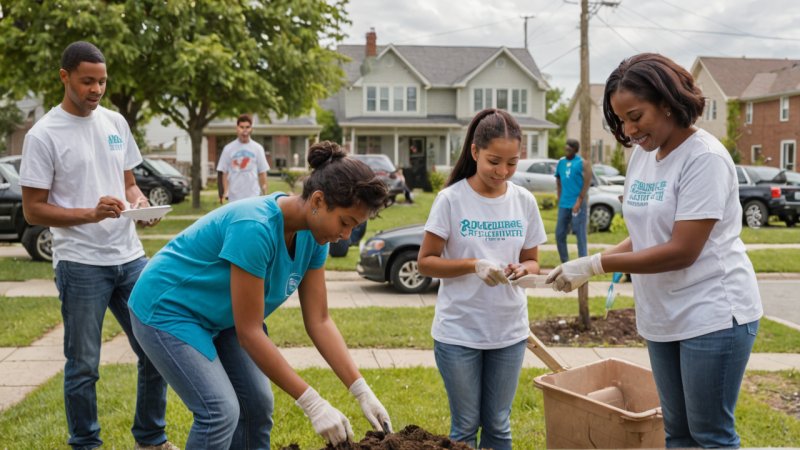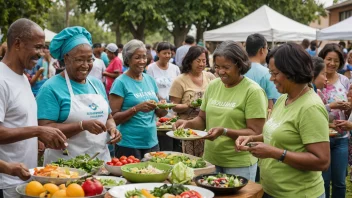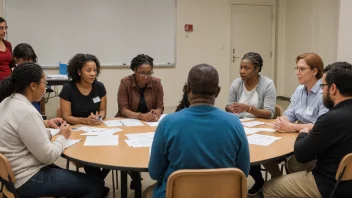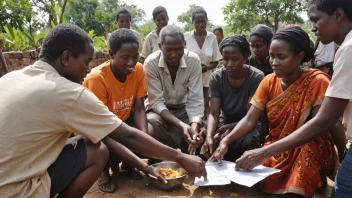Poverty remains one of the most pressing issues faced by humanity today, affecting billions of individuals around the world. As we step into 2024, it is crucial to adopt innovative strategies that can effectively address and alleviate poverty on a global scale. The complexities of poverty are not merely economic; they intertwine with health, education, and social justice, requiring multifaceted approaches. This article explores the top strategies for reducing poverty, highlighting actionable initiatives that individuals, communities, and organizations can pursue to make a significant difference.
1. Promoting Education and Literacy
Education is one of the most powerful tools in the fight against poverty. By increasing access to quality education and promoting literacy programs, communities can empower individuals to break the cycle of poverty. This strategy includes:
- Investing in Early Childhood Education: Providing access to early childhood education can significantly improve the educational outcomes for children from low-income families.
- Supporting Adult Literacy Programs: Many adults lack basic literacy skills, which limits their ability to find stable employment. Community-based programs that focus on adult education can help improve job prospects.
- Utilizing Technology: Leveraging online platforms and digital resources can expand the reach of educational programs, particularly in remote or underserved areas.
2. Enhancing Economic Opportunities
Creating job opportunities is essential for alleviating poverty. This can be achieved through various means, including:
- Supporting Small Businesses: Providing microloans and grants to local entrepreneurs can stimulate economic growth and create jobs within communities.
- Encouraging Fair Trade Practices: Promoting fair trade can ensure that producers in developing countries receive fair compensation for their goods, enhancing their economic stability.
- Implementing Job Training Programs: Workforce development initiatives that offer training and skills development can help individuals secure better-paying jobs.
3. Expanding Access to Healthcare
Health and poverty are closely linked. Poor health can lead to increased poverty, while poverty can limit access to healthcare. Strategies to improve health outcomes include:
- Community Health Initiatives: Local health programs that provide preventative care and education can have a lasting impact on overall community health.
- Increasing Access to Affordable Care: Advocating for policies that ensure affordable healthcare access can help individuals manage health issues without financial strain.
- Addressing Mental Health: Mental wellbeing is often overlooked in poverty discussions. Providing support for mental health can improve individuals' overall quality of life and productivity.
4. Strengthening Social Safety Nets
Robust social safety nets are crucial in protecting vulnerable populations from falling deeper into poverty. Key strategies include:
- Implementing Universal Basic Income (UBI): UBI has gained attention as a potential solution to provide financial security for all, ensuring that even the most vulnerable have access to basic needs.
- Expanding Food Security Programs: Initiatives that provide access to nutritious food for low-income families can improve health outcomes and reduce poverty.
- Enhancing Child Welfare Programs: Protecting children from poverty through targeted welfare programs can ensure that future generations have a better chance at success.
5. Fostering Community Engagement and Empowerment
Engaging communities in the fight against poverty is vital for sustainable change. Strategies include:
- Promoting Volunteerism: Encouraging individuals to volunteer their time and skills can enhance community cohesion and support local initiatives.
- Creating Participatory Programs: Involving community members in the design and implementation of poverty alleviation programs can ensure that initiatives are relevant and effective.
- Building Partnerships: Collaborating with local organizations, government agencies, and international bodies can amplify efforts and resources dedicated to poverty reduction.
6. Addressing Environmental Issues
Environmental degradation disproportionately affects low-income communities, exacerbating poverty. Strategies to address these issues include:
- Promoting Sustainable Practices: Encouraging environmentally sustainable practices among businesses and communities can help protect natural resources while creating jobs.
- Investing in Renewable Energy: Access to clean and affordable energy can improve living conditions and create economic opportunities in impoverished areas.
- Supporting Climate Resilience Initiatives: Programs designed to enhance community resilience to climate change can mitigate the impact of environmental disasters on vulnerable populations.
Conclusion
The fight against poverty in 2024 requires a combination of innovative strategies, community engagement, and a commitment to social justice. By promoting education, enhancing economic opportunities, expanding healthcare access, strengthening social safety nets, fostering community empowerment, and addressing environmental challenges, we can create a more equitable world. Each of us has a role to play in this effort, whether through volunteering, advocating for policy changes, or simply educating ourselves and others about the complexities of poverty. Together, we can contribute to meaningful change that uplifts individuals and communities around the globe.






